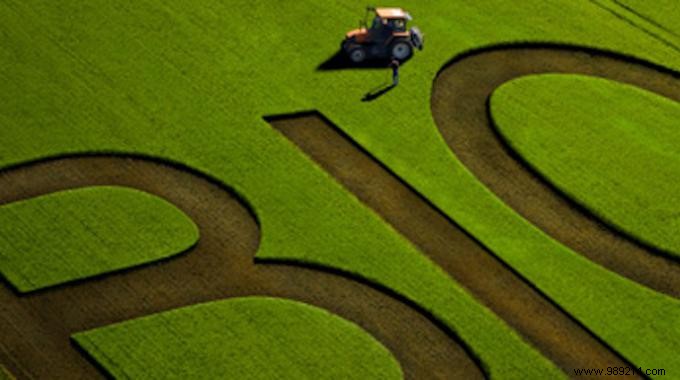
Debt, loss of values, falling prices…
In difficulty, more and more French farmers and breeders are turning to organic.
To cope with the recurrent agricultural crisis, cereal farmers and milk producers are abandoning intensive production methods to move towards organic farming.
This is unheard of ! The number of requests for conversion to organic is at an all-time high.
So much so that the organic sector is struggling to cope with conversion requests in many departments.
This is the case in Lower Normandy. Requests to switch to organic production mode have been multiplied by 3 this year compared to other years.
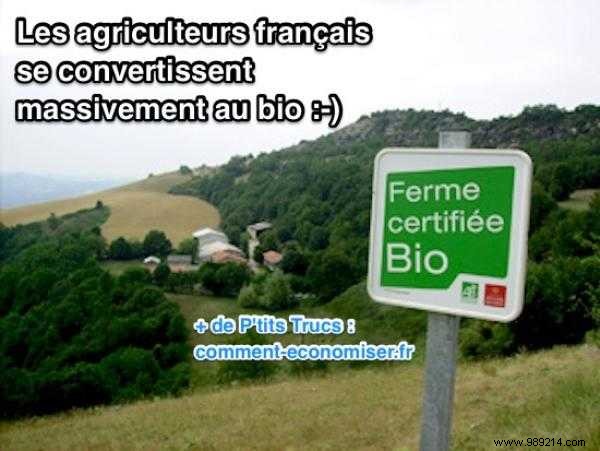
Until then, each year, about forty farmers took the plunge.
In 2015, there were no less than 150 and there will certainly be even more in 2016.
The Agribio association, which works to develop organic farming, recognizes that it is having difficulty coping with the increase in demand.
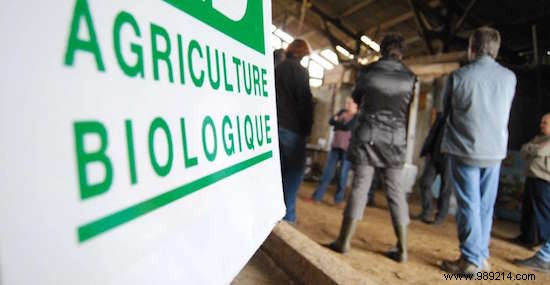
According to Gaël Avenel, president of the association, who speaks on Europe 1, "for Basse-Normandie this is unheard of, it translates into one or two calls on average per day for meetings, diagnoses of conversion.
The organic producer does not wonder if the price of milk will fall further next month, while in conventional we are on a systematic tumble. This is clearly a solution. »
This situation is not specific to Basse-Normandie. The same trend can be seen throughout France. The figures confirm this desire to switch to less quantitative but more qualitative production. .
The switch to organic attracts farmers and producers because it is synonymous with price stability.
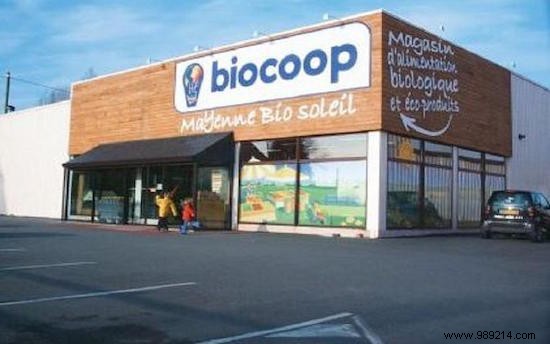
The figures speak for themselves:from 2014 to 2015, there was a 7% increase in the number of farmers and breeders working organically.
In 2015, 42,216 of them made this choice. In 2007, there were only 18,380 producers.
Alongside the increase in the number of organic producers, the area of land cultivated organically is also on the rise:+17% from 2014 to 2015.
This represents 1.3 million hectares cultivated organically in France, or 5% of all cultivated land. In 2007, there were only 2%! With the crisis resisting, the figures for 2016 should reach new records.
Faced with an increasing supply of organic products, consumers are responding. In 2015, the latter claimed to have confidence in responsible and civic agriculture.
The increase in demand is also very noticeable:in 2003, 37% of French people regularly bought organic products. In 2015, they were 65%.
The consequence is that the organic market is in insolent good health:a market of 5.5 billion euros with an annual increase of 10%!
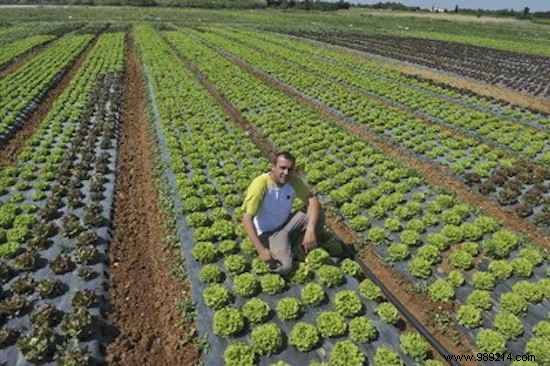
The only downside to this organic boom is the motivation of producers who switch to organic production mode. For the majority of them, money is the main driving force.
Few of them denounce the foundations of the agricultural production system. This is based on the agrochemical and biotechnological industries, the exploitation of living organisms and the search for absolute competitiveness. A system widely encouraged by the agricultural policy of the European Union.
Switching to organic is proving to be an effective solution to the agricultural crisis because food prices remain stable on the market.
Emmanuel is a milk producer in Orne. When he was a conventional producer, he had €15,000 in debt per year. To escape this infernal cycle, he chose to convert his production to organic.
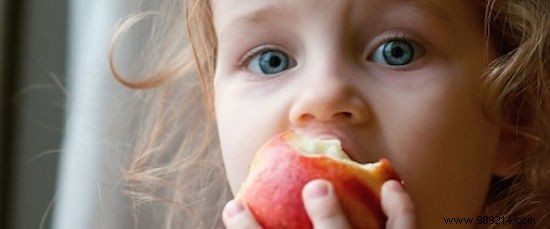
Obviously, once the decision is made, the transition to organic does not happen overnight. Emmanuel must review his entire mode of production from A to Z, especially the way he feeds the cows.
Until then their diet was mainly composed of hay. We will have to gradually switch to wheat. This is the objective of this 1st year of conversion.
“The basic food is hay, which tomorrow will have to be replaced by a mixture of wheat. There, we will have to store the harvest for the year. The objective is to no longer buy, but to produce all the animal feed yourself without resorting to external purchases so as not to depend on the vagaries or the international situation,” he explains.
Thanks to a higher selling price for his milk, he hopes to be able to make a profit of €3,000 from the first year, while waiting to do better in the following years.
On average, the transition from conventional agriculture to organic agriculture requires time and patience:between 3 and 5 years on average.